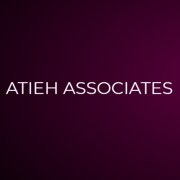Best Debt Capital Markets Lawyers in Tehran
Share your needs with us, get contacted by law firms.
Free. Takes 2 min.
List of the best lawyers in Tehran, Iran
About Debt Capital Markets Law in Tehran, Iran
Debt Capital Markets (DCM) play a vital role in Iran’s financial system, particularly in Tehran, which is the hub for capital market activities. DCM involves the issuance, trading, and legal structuring of debt instruments such as bonds, sukuk (Islamic bonds), and other forms of corporate or governmental debt. The market enables entities, including corporations and government bodies, to raise substantial capital from investors through public offerings or private placements. This sector is regulated primarily by the Securities and Exchange Organization of Iran (SEO), in accordance with Islamic finance principles, Iranian commercial law, and regulations tailored to ensure transparent, fair, and stable debt financing and trading.
Why You May Need a Lawyer
The debt capital markets are complex, and participants often require specialized legal assistance to navigate regulations and minimize risks. Here are common situations where legal expertise is essential:
- Drafting, reviewing, or negotiating documentation for debt securities issuance or trading
- Ensuring compliance with national and Sharia law requirements for bond or sukuk issuance
- Advising on reporting obligations and disclosure rules
- Structuring cross-border transactions involving foreign investors or international legal frameworks
- Handling disputes related to non-payment or default of debt instruments
- Advising on regulatory approvals from the Securities and Exchange Organization and other relevant authorities
- Addressing tax implications of debt instruments under Iranian law
Local Laws Overview
Debt Capital Markets in Tehran are governed by a combination of national legislation, regulatory guidelines, and Islamic finance principles. The most relevant laws and bodies include:
- Securities Market Act: Establishes the legal framework for securities issuance and trading
- Securities and Exchange Organization of Iran (SEO): The main regulatory authority overseeing compliance and market stability
- Islamic Financial Law: Debt instruments must comply with Sharia principles, such as the prohibition of riba (interest)
- Commercial Code and Corporate Laws: Set out the corporate governance and operational requirements for issuers
- Disclosure and Reporting Obligations: Issuers must meet rigorous transparency, periodic reporting, and risk disclosure requirements
- Foreign Investment Regulations: Transactions involving non-Iranian entities or investors are subject to additional rules and approvals
Staying updated on regulatory changes is essential, as the legal landscape can evolve due to economic and political factors.
Frequently Asked Questions
What types of debt instruments are commonly issued in Tehran's markets?
The most common debt instruments are corporate bonds, government bonds, sukuk, and occasionally commercial papers or notes.
Are foreign investors allowed to participate in Tehran's debt capital markets?
Yes, but foreign investors must comply with specific approval processes and restrictions set by the Securities and Exchange Organization and other authorities.
What are the main regulations governing sukuk (Islamic bonds) in Iran?
Sukuk issuance must adhere to Sharia law, Iranian securities law, and guidance from related authorities like the SEO and the Central Bank of Iran.
How is investor protection ensured in Iran’s debt capital markets?
The SEO enforces disclosure, reporting, and transparency rules, and there are mechanisms for dispute resolution and regulatory oversight of market participants.
What does the process of issuing bonds or sukuk in Tehran involve?
The process includes preparation of legal documentation, obtaining regulatory approvals, fulfilling disclosure obligations, and listing securities on authorized exchanges.
Do issuers have to follow Sharia compliance for all debt instruments?
Yes, most debt instruments in Iran must follow Sharia principles, particularly in avoiding interest-based structures.
What happens if an issuer defaults on debt obligations?
Legal recourse is available through mediation or courts. Bondholders can initiate proceedings based on pre-agreed terms or legal contracts.
Is legal due diligence required for issuing debt securities?
Yes, comprehensive due diligence is crucial to identify risks, ensure regulatory compliance, and validate financial statements.
Can debt securities be listed on the Tehran Stock Exchange?
Yes, subject to compliance with exchange requirements and SEO regulations, most debt securities including government and corporate bonds and sukuk are listed for trading.
What should investors check before purchasing debt securities in Iran?
Investors should review the issuer’s financial health, credit ratings, compliance with regulations, and the structure of debt instruments, ideally with legal counsel.
Additional Resources
For more information or assistance, the following organizations and resources can be helpful:
- Securities and Exchange Organization of Iran (SEO)
- Tehran Stock Exchange (TSE)
- Iranian Central Depository Company
- Iran Fara Bourse (IFB)
- Central Bank of Iran
- Specialized law firms with capital markets expertise
- Chambers of Commerce or business advisory centers
Next Steps
If you require legal assistance with debt capital markets in Tehran, it is recommended to:
- Identify and contact a lawyer or law firm with expertise in securities, Islamic finance, and commercial law
- Gather all relevant documents and information about your intended transaction or issue
- Request a consultation to discuss your goals, challenges, and compliance requirements
- Work closely with your legal advisor to prepare required documentation, applications, or contracts
- Stay informed by following updates from regulatory bodies including the SEO and the Central Bank
Qualified local legal counsel will help you understand your rights, obligations, and optimal strategies for successful participation in Tehran’s debt capital markets.
Lawzana helps you find the best lawyers and law firms in Tehran through a curated and pre-screened list of qualified legal professionals. Our platform offers rankings and detailed profiles of attorneys and law firms, allowing you to compare based on practice areas, including Debt Capital Markets, experience, and client feedback.
Each profile includes a description of the firm's areas of practice, client reviews, team members and partners, year of establishment, spoken languages, office locations, contact information, social media presence, and any published articles or resources. Most firms on our platform speak English and are experienced in both local and international legal matters.
Get a quote from top-rated law firms in Tehran, Iran — quickly, securely, and without unnecessary hassle.
Disclaimer:
The information provided on this page is for general informational purposes only and does not constitute legal advice. While we strive to ensure the accuracy and relevance of the content, legal information may change over time, and interpretations of the law can vary. You should always consult with a qualified legal professional for advice specific to your situation.
We disclaim all liability for actions taken or not taken based on the content of this page. If you believe any information is incorrect or outdated, please contact us, and we will review and update it where appropriate.
















